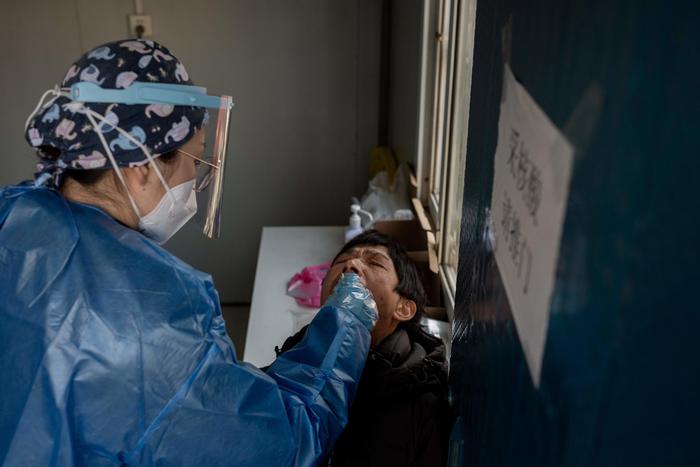They are virologists, epidemiologists, veterinarians.
In their careers they have faced all kinds of infections, from AIDS to Ebola.
For the next five months they will grapple with the most difficult challenge: understanding the origins of the coronavirus and a pandemic that has killed nearly two million people worldwide.
From tomorrow, 'virus hunters' will arrive in Wuhan, as they are called in scientific circles, the 10 super experts of the WHO.
Eight men and two women - from the United States, Great Britain, Germany, Holland, Denmark, Russia, Qatar, Vietnam and Japan - selected by the UN agency with the approval of Beijing, which received the list of names in November.
A list kept secret and published only after the authorization of those directly involved because, said on that occasion the head of the emergency Mike Ryan, "there have been such attacks on the scientific community in recent times that it is not easy to be a researcher in this period".
But who are the scientists of the 'dream team' who will have the task of discovering which animals to the Wuhan market brought Covid and above all how they transmitted it to humans?
Marion Koopmans and Thea Fischer are the only two women on the WHO team.
The first Dutch, the second Danish, both have a long experience as virologists and epidemiologists.
It was Koopmans who discovered in 2013 that camels and dromedaries were able to transmit Mers respiratory syndrome to humans and it was she who a few months ago identified and monitored the presence of the coronavirus in mink farms in northern Europe.
For the scientist, who at 64 is the veteran of the group, it is important to have an open mind on how the pandemic began, "everything is on the table".
Veterinarian by training, the German Fabian Leendertz, of the Robert Koch Institut in Berlin, is one of the leading experts on Ebola, a disease he has followed since 2014 when he went to the village of Meliandou, Guinea, a few months after the death of a child of two years, the first infected person in West Africa.
Leendertz's studies have suggested that the Ebola outbreak originated from bats that lived inside the hollow of a tree where children used to play.
There are still the Vietnamese Hung Nguyen, expert in zoonosis;
John Watson, former Deputy Head of the British Institute of Health;
the Australian Dominic Dwyer, an expert on HiVs, and the British zoologist Peter Daszak, whose appointment has raised some controversy.
In addition to a decade of experience in the study of various coronaviruses, Daszak has, in fact, a very long collaboration with the scientist Shi Shengli, known in China as 'bat woman', at the Wuhan Institute of Virology.
The very one accused, also by the American President Donald Trump, of having created and made escape 'the terrible virus.
China has ensured maximum collaboration with WHO researchers, however it has asked that the mission in Wuhan is not the only one in search of the origins of the coronavirus, inviting scientists to investigate also in Italy, France and the United States.




/cloudfront-eu-central-1.images.arcpublishing.com/prisa/GLQIPWOC3VBT3BKZRNAZOQJEQU.jpg)



